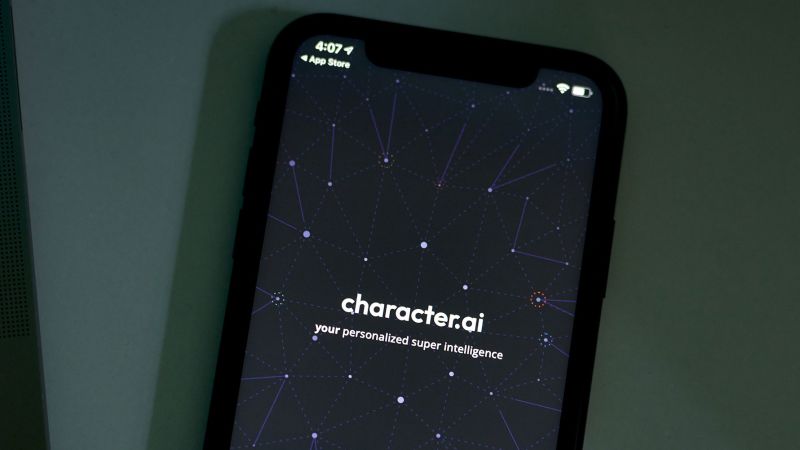In a recent incident that has drawn significant attention, two U.S. Senators, Alex Padilla and Peter Welch, are urging artificial intelligence (AI) companies to disclose their safety protocols. This call for transparency follows a series of lawsuits filed by families who claim that AI chatbots, particularly those from the startup Character.AI, have negatively impacted the mental well-being of children. Notably, one lawsuit is from a Florida mother whose 14-year-old son died by suicide, allegedly linked to his interactions with these chatbots.
In a letter directed at companies such as Character Technologies (the parent company of Character.AI), Chai Research Corp., and Luka, Inc. (which produces the chatbot service Replika), the senators expressed grave concerns about the risks that character-based AI applications pose to young users. They highlighted the need for these companies to clarify the safety measures they have implemented in their products and the training protocols used for their AI models. The letter outlined the significance of understanding the implications these technologies hold for the mental health of their users, particularly vulnerable young individuals.
A fundamental concern surrounds how these AI models differ from mainstream chatbots like ChatGPT, which primarily serve general purposes. Platforms such as Character.AI, Chai, and Replika enable users to create and interact with customized chatbots, allowing for varied personas and personality traits. For instance, users on Character.AI can engage with bot replicas of fictional characters, or even chat with bots that pose as mental health experts. However, there are also troubling examples of bots that present themselves in aggressive or inappropriate ways, including personas inspired by violence and abuse, which could potentially be damaging to impressionable users.
The phenomenon of treating chatbots as digital companions or even romantic partners is becoming increasingly commonplace. While some users might enjoy interactions with these bots for entertainment or companionship, experts and parents alike are raising alarms over the potential for unhealthy emotional attachments to form. In an era where many young individuals rely on AI for connection, it is critical to examine the psychological risks involved, particularly when users may encounter content that is inappropriate for their age or comprehension level.
The senators’ letter outlines the dangers of what they call “unearned trust” in AI interactions. Users often feel comfortable sharing sensitive information with these bots, which are poorly equipped to handle complex discussions about mental health concerns, including self-harm or suicidal thoughts. The emotional repercussions of these conversations can pose severe risks for vulnerable users. The letter emphasizes the urgent need for AI companies to develop better safeguards to prevent these conversations from straying into dangerous territories.
The accusations laid out by the Florida mother, Megan Garcia, reveal alarming details about her son’s experiences with Character.AI. Garcia claims that her son established inappropriate attachments to chatbots on the platform and became increasingly withdrawn from his family. Furthermore, according to her statements, many of his interactions were sexually explicit and failed to provide appropriate responses when he mentioned self-harm.
Following Garcia’s case, additional families have come forward, alleging that Character.AI has provided access to sexual content and even encouraged harmful behaviors. They detail troubling instances where bots created a supportive environment for ideas of violence, which evidently raises important ethical questions regarding how these AI systems are moderated.
In response to growing scrutiny, Character.AI has claimed to have recently implemented new safety protocols. These include directing users to the National Suicide Prevention Lifeline whenever discussions of self-harm arise, as well as developing technology aimed at shielding teenagers from sensitive content. Moreover, the company announced a new feature that provides parents with weekly insights about their child’s interactions on the platform, including the amount of screen time and favorite characters.
The broader implications of AI chatbots on human relationships are becoming a topic of concern among various experts. Replika’s CEO, Eugenia Kuyda, previously noted that their platform aims to foster “long-term commitment” and positive relationships, even suggesting that such interactions could evolve into familial-like bonds. This notion further complicates how we understand the term “relationship” when it comes to interactions with AI.
Through their correspondence, Senators Padilla and Welch have requested a comprehensive overview of the AI firms’ safety measures, ongoing research concerning the effectiveness of such measures, and information regarding the training data used for AI models. They insist that transparency is crucial for policymakers, parents, and the users themselves in order to understand and mitigate the risks associated with AI interactions, particularly those related to mental health.










